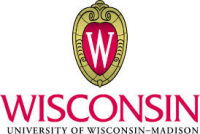 University of Wisconsin-Madison takes steps to reduce environmental and financial impact by using EIS Office Solutions remanufactured toner cartridges.
University of Wisconsin-Madison takes steps to reduce environmental and financial impact by using EIS Office Solutions remanufactured toner cartridges.
The university explained that its Purchasing Services, in partnership with Administrative Process Redesign and as part of the Administrative Excellence initiative, has organised a team of facilities personnel to review the campus in terms of the various products it uses and select a standard of common-use products in order to reduce the university’s environmental impact and cut costs; including paper hand towels, toilet paper and plastic bin bags.
Taking action to limit the number of vendors and products has allowed the university to improve pricing and streamline ordering, shipping and storage, saving thousands of dollars; with Martha Kerner, Assistant Vice Chancellor for business services, explaining: “We’re being very thoughtful about building for the future of the university […] When we can be good stewards of our financial resources and have a positive environmental impact at the same time, we know we’re headed in the right direction. We’re very proud of this work.”
The use of printer cartridges on campus was also reviewed, with Purchasing Services deciding to switch to using remanufactured toner cartridges, appointing EIS Office Solutions as a remanufactured toner vendor to the university’s Shop@UW site. This move came after it was calculated that the university had purchased almost 6,000 new toner cartridges from OEMs over a seven-month period at a cost of around $703,000 (€521,000), whereas using remanufactured toner cartridges over the same period would have cost the university just $221,000 (€164,000) – a saving of $482,000 (€357,000).
“These are exactly the types of things we need to pay attention to on this campus,” said Darrell Bazzell, Vice Chancellor for Finance and Administration. “These are sound business practices that help us achieve our strategic priority of being responsible stewards of our resources. The time and money saved by these simple measures will go a long way towards our educational and outreach priorities without compromising our commitment to high quality.”
